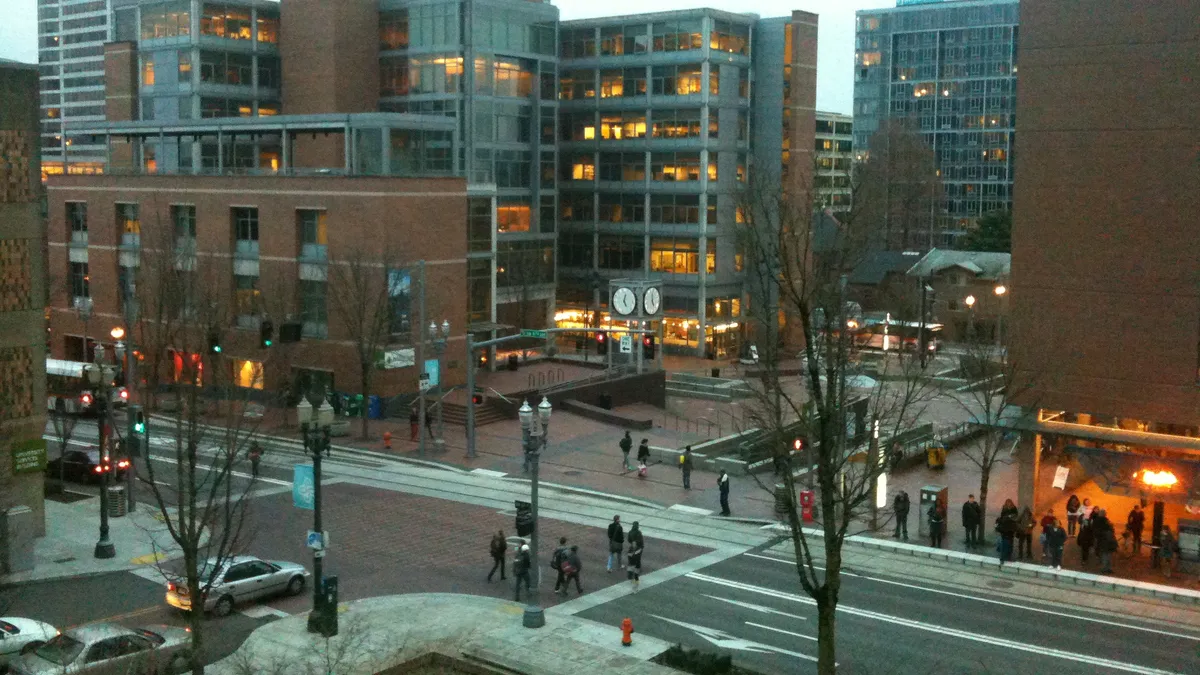Dive Brief:
- Portland State University (PSU) in Oregon has created two research centers — one for homelessness and one for smart city technology — to address what it says are the city's largest challenges including homelessness, environmental sustainability and traffic.
- The PSU Homelessness Research & Action Collaborative will seek solutions to homelessness by understanding its root causes and using evidence-based science to allow city leaders and other stakeholders to make informed decisions. The PSU Digital City Testbed Center will examine how technology can make cities safer, healthier, more accessible, more economically viable and more climate friendly, while looking at privacy, security and equity concerns. That center will coordinate a network of campuses throughout the region where cities and other stakeholders will be able to evaluate technologies before installing them in communities.
- The new centers will be on the main PSU campus in downtown Portland and the university will provide $3 million in seed funding — $500,000 for each center, each year for the next three years — but they will be required to secure additional funding.
Dive Insight:
PSU President Rahmat Shoureshi said establishing these centers has been a top priority since he assumed his position with the university a year ago. He wanted to make these centers different from the many around the country and wanted to ensure they have a large impact, reports the Portland Tribune. More than 200 university researchers contributed to 28 proposals for core topics the centers could cover, homelessness and smart cities technology ultimately being chosen.
Shoureshi eventually wants to establish seven of these centers on the PSU campus, according to Oregon Live. The initial two are pilot programs and if they don't prove to be financially self-supportive, they will be swapped out for other ideas.
Portland already has jumped into the smart city space with technology such as air sensors, and the new PSU centers should help the city find other problems that can be solved with emerging technology. The Digital City Testbed Center commitment to helping leaders and stakeholders test technologies before implementing the devices could save the city a lot of time and reduce the risks associated with spending taxpayer money.
As in many West Coast cities right now, homelessness is a growing problem in Portland, especially as the city feels the effects of the housing affordability crisis. The city recently commissioned an independent cost estimate for creating 2,000 units of supportive housing, which came out to $592 million to $640 million over the first 10 years, with $43 million to $47 million needed annually for operations. The new Homelessness Research & Action Collaborative could help the city develop more cost effective and successful programs to mitigate homelessness.











